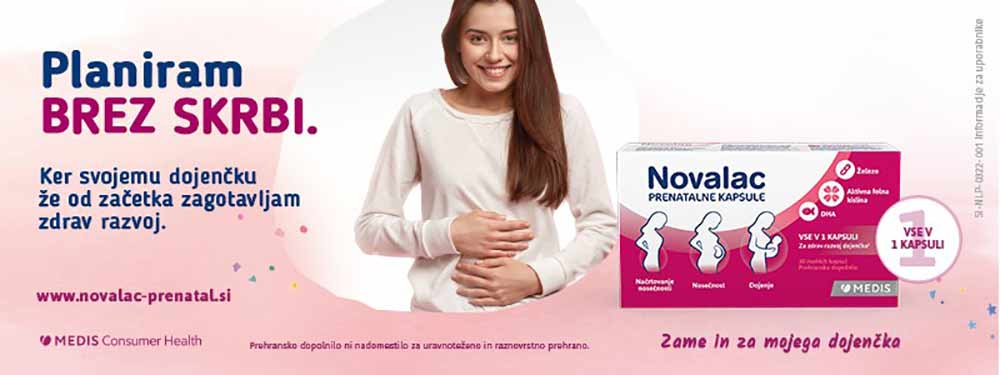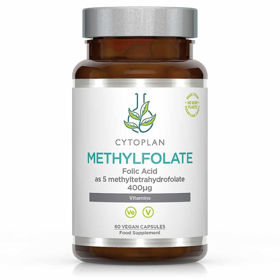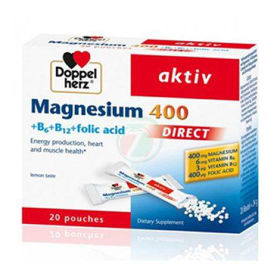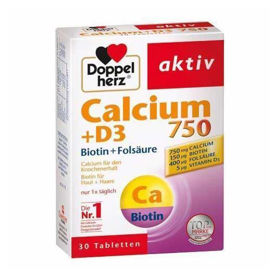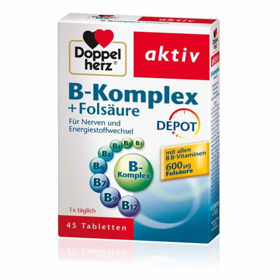Folic acid is a synthetic version of folate, also known as vitamin B9. This nutrient is crucial in early pregnancy to reduce the risk of congenital disabilities of the brain and spine.
FOLIC ACID: About Folic Acid | Where can we find it? | Folate in food | Folate deficiency and treatment | Deficiency Complications | Causes of scarcity | Folate Interactions | Questions and Answers | Sources/references
Folic acid is a synthetic version of folate, also known as vitamin B9. This nutrient is crucial in early pregnancy to reduce the risk of congenital disabilities of the brain and spine.
All women of childbearing age should consume 400 mcg (micrograms) of folic acid every day to prevent specific congenital disabilities in the unborn fetus - significant congenital disabilities in the baby's brain or spine are known to occur very early in pregnancy (3-4 weeks after conception) before most women know they are pregnant.
For women who have already had a pregnancy with a fetal neural tube defect, it is essential to consult their doctor. In such cases, it is recommended that women consume 4000 mcg of folic acid daily for one month before conception and during the first three months of pregnancy.
Video content: What is folic acid?
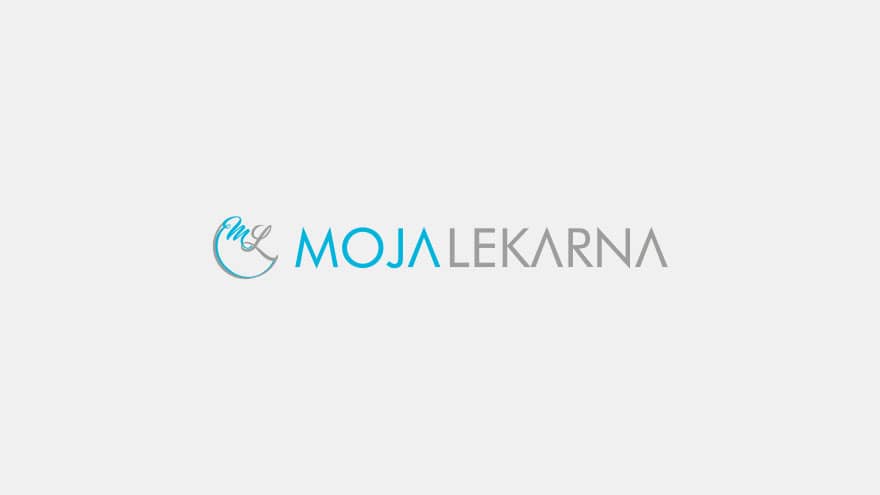
Folate deficiency can also occur in people with diseases such as celiac disease that prevent the small intestine from absorbing nutrients from food (malabsorption syndromes).
The human body cannot produce folate, so we must obtain this vitamin from our food. The best way to do this is by regularly eating foods that contain naturally occurring folate, such as legumes, dark leafy vegetables, and fermented dairy products – or by consuming products fortified with synthetic folic acid.
Where is folic acid found?
Folate is mainly found in dark green leafy vegetables, beans, peas, and nuts. Fruits rich in folate include oranges, lemons, bananas, melons, and strawberries. The synthetic form of folate is folic acid. It is an essential component of prenatal vitamins and many foods such as cereals and pasta.
Eggs are considered a quality food known for their high content of macro- and micronutrients, such as high-quality proteins, vitamins, and lipids - including polyunsaturated fatty acids and phospholipids. Eggs also contain vitamin A, iron, B12, riboflavin, choline, zinc, and calcium. In addition, one egg can provide between 40-86 mcg of folate, equivalent to 10-22% of the RDA (recommended daily value) for adults.
Video content: rich sources of folic acid

The yolk is the primary source of folate found in eggs. Most of the folate in eggs is in the form of 5-methyltetrahydrofolate (methyl folate), which is known as the metabolically active form of folate that is easily absorbed by the body. Eggs also have more excellent folate stability compared to plant-based foods.
Vegetables are also an excellent source of folate and rich in fiber, vitamins, and minerals. Vegetables that contain the most folate are green and yellow beans, peas, cauliflower, broccoli, and spinach. Folate in vegetables is also present in a biologically active form known as methylfolate, which is more easily absorbed by the body.
Cooking vegetables can significantly reduce folate content. For example, heat can significantly reduce folate content by 50-80% in cooked green vegetables and legumes compared to raw vegetables. Similarly, irrigation can result in lower folate content in legumes.
On the other hand, food processing, such as chopping, can have the opposite effect and increase the bioavailability of folate from leafy greens. For example, chopped spinach has a higher bioavailability of folate than folate from whole spinach leaves, assuming the same parts of the plant are used in both cases.
Tropical fruits, such as guava, mango, melon, or pineapple, have a higher folate content than others, such as, e.g., peach or apple. Therefore, a portion of 110 g of passion fruit is considered large enough to cover the recommended daily intake of 300 mcg of folate for adults.
Image: tropical fruit
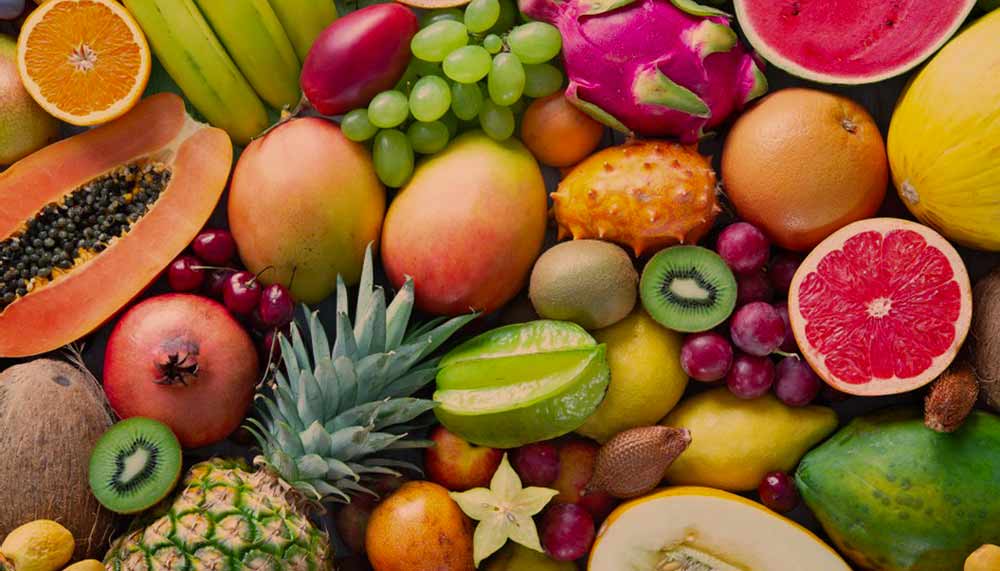
The following food combinations will not only increase your folate intake. Still, they will also provide your body with several healthy nutrients that will keep your energy levels high throughout the day and help you feel fuller for longer:
- poached eggs and avocado on toast
- chickpea salad with spinach and lentils
- bean, pea, and green lentil salad
- green smoothie: mix of avocado, mango, and spinach
- avocado, pumpkin/sunflower seed, and spinach salad
- roasted asparagus with scrambled eggs
What affects the level of folate in food?
Natural folates found in foods of plant and animal origin are very sensitive to cooking, preparation, and storage. High temperature, exposure to sunlight, or long-term storage can cause the folate content of foods to decrease.
The most significant losses of folates were observed after canning, where 65% and 77% of folates were lost in spinach and chickpeas. Cooking also significantly affects folate concentrations, reducing folate content by 25% in cooked green peas and 70% in cooked chickpeas. No significant folate losses were observed after steaming or heating in a microwave oven.
Figure: showing the chemical formula of folate
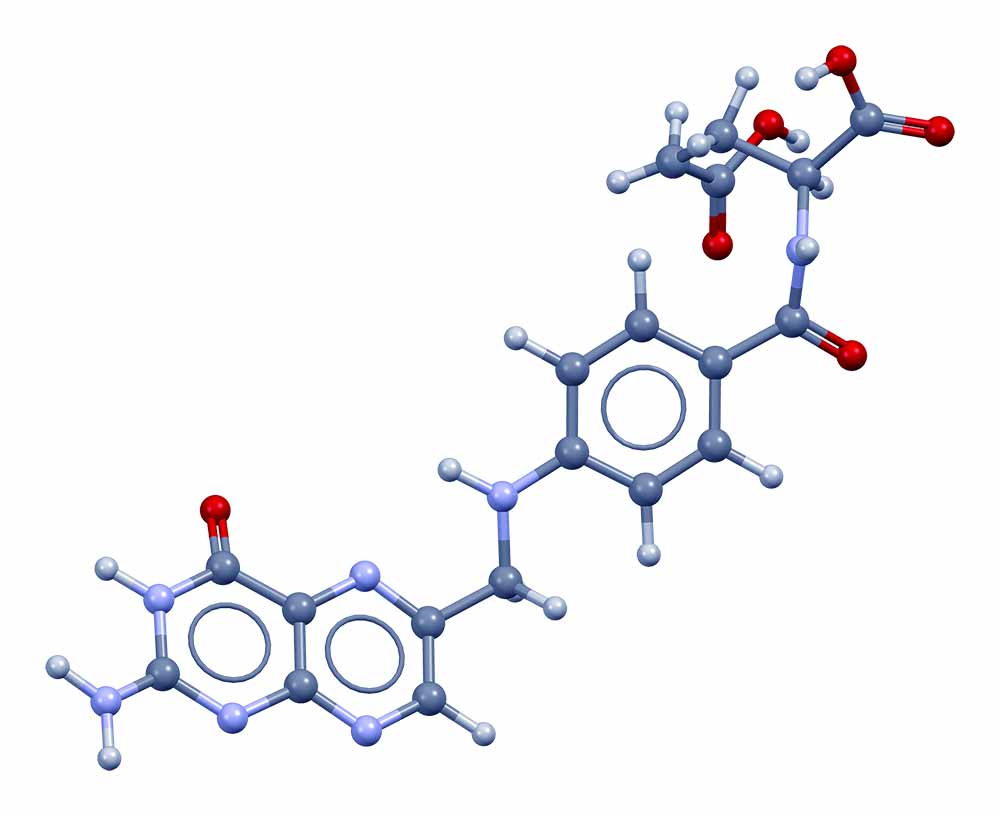
Canning and freezing are storage methods that can significantly reduce the folate content of vegetables, especially pre-cut vegetables (chopped spinach) and small items (green peas). For example, cauliflower frozen for three months can lose 95% of its methyl folate content compared to fresh cauliflower.
How does folate deficiency manifest itself, and how is it treated?
Vitamin B9 deficiency anemia occurs when a lack of vitamins causes the body to produce abnormally large red blood cells that cannot function properly.
Video content: Folate deficiency can be as educational as radiation

Vitamin B9 performs many vital functions in the body, so a lack of this vitamin can cause many problems:
Symptoms of anemia:
- pale complexion
- shortness of breath (dyspnea)
- irritability
- dizziness
Oral symptoms:
- red tongue
- sores or ulcers in the mouth
- reduced sense of taste
Image: some symptoms of folate deficiency

Neurological symptoms:
- memory loss
- problems with concentration
- confusion
Additional symptoms of folate deficiency may include:
- lack of energy
- muscle weakness
- depression
- weight loss
- diarrhea
See your doctor if you have a vitamin B9 or folate deficiency. These conditions can often be diagnosed based on your symptoms and blood test results. However, it is essential for anemia due to vitamin B9 deficiency to be diagnosed and treated as soon as possible.
Most cases of vitamin B12 and folic acid deficiency can be treated with injections or tablets to replace the missing vitamins. Folic acid tablets are used to restore folate levels and usually must be taken for at least four months. Improving nutrition can sometimes help treat and prevent the deficiency from recurring.
What are the possible complications of folic acid/folate deficiency?
Although uncommon, folate deficiency (with or without anemia) can cause complications, especially if you have been deficient in this nutrient for some time. Possible complications may include:
- complications in pregnancy and congenital disabilities
- you interact with the nervous system
- temporary infertility
- heart diseases
Some complications usually improve with appropriate treatment, but others – such as problems with the nervous system – can be permanent. In addition, adults with severe anemia are also at risk of developing heart failure.
Video content: folate / folic acid deficiency

If you are deficient in vitamin B9, your risk of developing stomach cancer increases. Folate deficiency also increases the risk of certain types of cancer, such as colon cancer. Lack of folate in the body also increases the risk of cardiovascular disease (CVD). Deficiency conditions usually improve with appropriate treatment.
Folate deficiency anemia during pregnancy can cause neural tube defects. It can also cause paralysis of the legs or death before or shortly after birth. Folate deficiency can also sometimes cause temporary infertility. Therefore, it is recommended that all women who could become pregnant take a daily folic acid supplement.
Figure: Neural tube defect

Folate deficiency during pregnancy can increase the risk of the baby being born prematurely (before 37 weeks) or having a low birth weight. In addition, the risk of placental abruption may also increase. This is a severe condition in which the placenta begins to detach from the inside of the uterine wall, causing abdominal pain and vaginal bleeding.
Taking or consuming large amounts of folic acid can mask vitamin B12 deficiency. This deficiency occurs most often in older adults or those on a vegan diet, where B12 deficiency is more common.
Both folate and B12 are involved in forming red blood cells, and a deficiency of both can cause anemia. A person who takes high doses of folic acid supplements may reverse the anemia and feel better, but the B12 deficiency still exists.
If high folate intake continues to mask B12 deficiency symptoms, long, slow, irreversible brain and nervous system damage can occur. Therefore, if you supplement with folic acid, stick to the lower available range of 400 mcg per day or less, as you will get additional folate from fortified foods in your daily diet.
What causes folate deficiency?
Many problems can lead to folate deficiency. These include:
- Pernicious anemia: the immune system attacks healthy cells in the stomach and prevents the body from absorbing folate from food; this is the most common cause of folate deficiency.
- Lack of folate in your diet is uncommon but can happen if you eat a vegan diet and do not take vitamin B9 supplements or foods fortified with these vitamins, follow a restrictive diet, or have a generally poor diet.
- Medications: some medications, including anticonvulsants and proton pump inhibitors (PPIs), can affect the amount of vitamins your body absorbs.
Video content: folate deficiency - what causes it?

- Alcoholism: alcohol interferes with folate absorption and accelerates the rate of folate breakdown and elimination from the body. People who suffer from alcoholism also tend to eat poor-quality food with low folic acid content.
- Intestinal surgery or digestive disorders that cause malabsorption: Celiac disease and inflammatory bowel disease can reduce folate absorption. Surgical procedures involving the digestive organs or reducing the average level of stomach acid can also interfere with absorption.
- Genetic variants: people who carry a variant of the MTHFR gene cannot convert folate into its active form that the body can use.
- Pregnancy: a developing child needs more folic acid. Also, during this period, the mother absorbs it more slowly. Folate deficiency during pregnancy is associated with significant congenital disabilities affecting the brain, spinal cord, and spine (neural tube defects).
What are the possible interactions with other drugs?
- Anticonvulsants: Taking folic acid with fosphenytoin, phenytoin, or primidone may decrease the concentration of the drug in the blood.
- Barbiturates: Taking folic acid with a drug that acts as a central nervous system depressant can reduce the drug's effectiveness.
- Methotrexate: Taking folic acid with this medicine, which treats cancer, could affect its effectiveness.
- Pyrimethamine: Taking folic acid with this antimalarial drug may reduce the effectiveness of the drug.
Frequently Asked Questions and Answers
Is folic acid essential in pregnancy?
All women of childbearing age should consume 400 mcg of folic acid daily to prevent specific congenital disabilities, including significant congenital disabilities of the baby's brain or spine that occur very early in pregnancy (3-4 weeks after conception), before most women know they are pregnant.
When trying to conceive or in the early months of pregnancy, you may need to look for supplements containing at least 400 micrograms of folic acid. The best way to ensure you get enough folic acid is to take a daily folic acid supplement at least one month before and up to 3 months after conception.
Image: Folate intake

Folate deficiency during pregnancy can increase the risk of the baby being born prematurely (before 37 weeks) or having a low birth weight. In addition, the risk of placental abruption may also increase. This is a severe condition in which the placenta begins to detach from the inside of the uterine wall, causing abdominal pain and vaginal bleeding[1].
How to consume folic acid naturally?
Folic acid is a synthetic version of the vitamin folate, also known as vitamin B9. Folate is usually found in dark green and leafy vegetables such as spinach, asparagus, dried or fresh beans, peas, kale, turnip greens, lettuce, raw cabbage, Brussels sprouts, and broccoli. These have the highest levels of folate in any food.
Eggs are also an excellent source of folate, as one egg contains 22 micrograms of folate. The yolk is the primary source of folate found in eggs. Most of the folate in eggs is 5-methyltetrahydrofolate (methylfolate), which is known as the metabolically active form of folate that is easily absorbed by the body. Eggs also have more excellent folate stability compared to plant-based foods.
Other sources of this nutrient include sunflower seeds, avocados, peanuts, orange juice, pineapple juice, honeydew melon, grapefruit, bananas, raspberries, papaya, strawberries, beets, corn, tomato juice, vegetable juice, wheat germ, and cereals
sup>[2].
Which dietary supplements with folic acid are the best?
Regarding supplying the body with nutrients, dietary folate – in whole foods – is superior to synthetic folic acid in supplements and processed foods. It is more easily accessible to the body and does not present the same potential accumulation risks.
Folate in the daily diet may not be present in large enough quantities for those who need more, such as pregnant women or people with MTHFR gene mutations. This makes folate an essential nutrient in all prenatal formulas and for anyone at risk of folate deficiency. In addition, methylfolate is the most suitable form of folate for your body.
However, there are forms of folate currently on the market that the body does not use well, such as the artificial, synthetic form called folic acid. This folate is used in food fortification to replenish folate lost in processing grains, such as cereals and pasta. Unfortunately, this form of vitamin B9 has low bioavailability.
Folic acid supplements are an affordable choice and popular advice from doctors for pregnancy, low mood, and high homocysteine levels. Unfortunately, in some people, the body cannot use folic acid properly, so unmetabolized folic acid can "wander" around the body, blocking necessary enzymes and slowing down the body's ability to obtain active folic acid.
The recommendation is vital that you meet your nutritional needs primarily through nutrition. However, there are cases where supplementation is recommended for purposes such as nutrient deficiencies, conditions causing malabsorption, inadequate access to food, and specific periods of life such as pregnancy.
When shopping for vitamins and other supplements, look for products that have been third-party tested to contain safe levels of vitamins and minerals. Because of potential interactions, always check with your doctor before taking any vitamin or supplement – especially if you are pregnant, nursing, taking any medications, or have a specific medical condition[3]. p>
How much folic acid is recommended to take every day?
The recommended daily amount of folate for adults, both women and men, is 400 micrograms (mcg). Current recommendations for pregnant women and women planning to become pregnant are 4,000 mcg of folic acid every day starting one month before conception and continuing for the first three months of pregnancy. Women should consume 400 mcg of folic acid daily, even if they are not planning to become pregnant[4].
Sources and references
Source: Family Health Guide. Conventional and alternative treatment, Dr. Jaro Lajovic, Publishing House Mladinska knjiga
1. Folic Acid - https://www.cdc.gov
2. Folate (Folic Acid) – Vitamin B9 - https://www.hsph.harvard.edu
3. Get Your Energy Levels Up With the Best Folic Acid Supplement - https://www.miamiherald.com
4. Folate (folic acid) - https://www.mayoclinic.org

